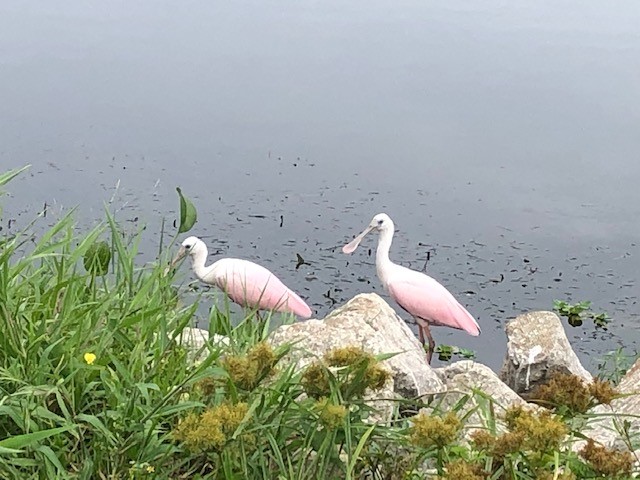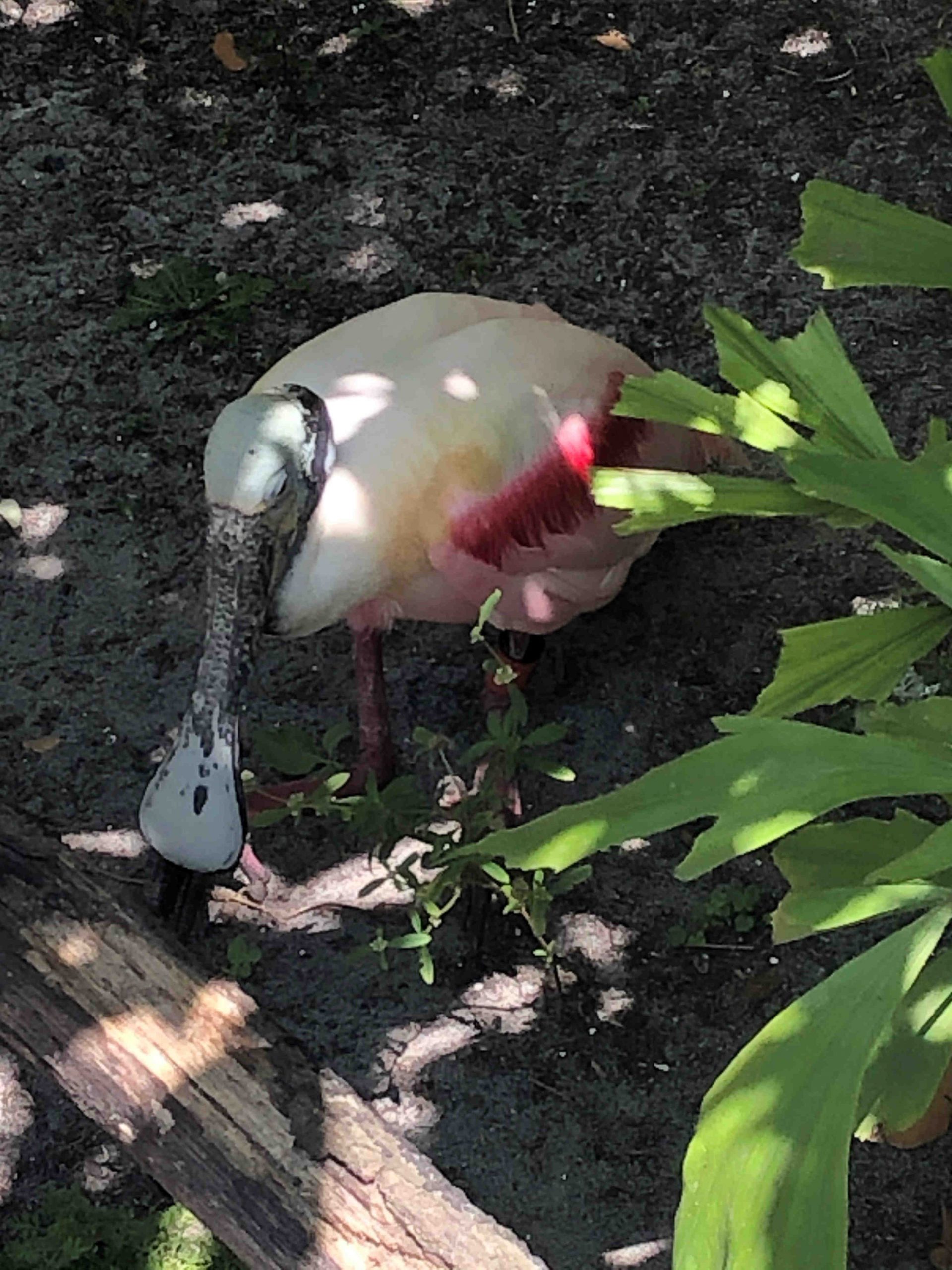
Roseate Spoonbill in Florida
Genus and Species: Platalea ajaja
Listing Status from the Florida Fish and Wildlife Conservation Commission
- Federal Status: Not listed
- FL Status: State-designated Threatened
- FNAI Ranks: G5/S2 (Globally: Demonstrably Secure/ State: Imperiled)
- IUCN Status: LC (Least Concern)
Roseate spoonbill are a Florida specialty with visiting birders from outside the state seeking them out. These beautiful pink birds can be found searching for food in shallow water in central and south Florida’s estuarine mangroves and freshwater systems. They sweep their sensitive spatulate (spoon) shaped bill from side-to-side through the shallow water in search of crayfish, crabs, small fish and shrimp (FWC 2021). The pink coloration of their body feathers comes from carotenoids – organic pigments in the organisms they feed on. A literature description state that their head is “bare greenish” with an orange tail (Kale and Maehr 1990). Immatures are paler and whiter.
Historically, roseate spoonbill were hunted for their feathers. In the middle of the twentieth century, this species was nearly wiped out. This practice is now illegal. The population in Florida has rebounded with large breeding colonies in Florida Bay, Tampa Bay and Merritt Island.
Time of egg laying in Florida differs. In Florida Bay, November and December is when egg laying occurs (Kale and Maehr 1990). Further north, egg laying occurs in April. Although populations trends of roseate spoonbill are steadily increasing, threats to their survival are also increasing. These threats include loss of feeding habitat.

References
Basille, M. and K. Stofer. 2019. Bioblitzes: citizen science for biodiversity in Florida. [UF/IFAS EDIS WEC404/UW449] https://edis.ifas.ufl.edu/publication/UW449
Florida Fish and Wildlife Conservation Commission. 2021. Roseate Spoonbill. Accessed online 9/14/2021. https://myfwc.com/wildlifehabitats/profiles/birds/waterbirds/roseate-spoonbill/
Kale, H.W., and D.S. Maehr. 1990. Florida’s birds: a handbook and reference. 1st Edition. E.T. Lowe Publishing Company. Nashville, TN.
The mission of the University of Florida Institute of Food and Agricultural Sciences (UF/IFAS) is to develop knowledge relevant to agricultural, human and natural resources and to make that knowledge available to sustain and enhance the quality of human life. With offices in each of Florida’s 67 counties, UF/IFAS Extension works to bring science-based solutions to the state’s agricultural and natural resources industries, and all Florida residents.
UF/IFAS Extension programs are open to all persons without regard to race, color, sex, age, disability, religion, or national origin.
 0
0
